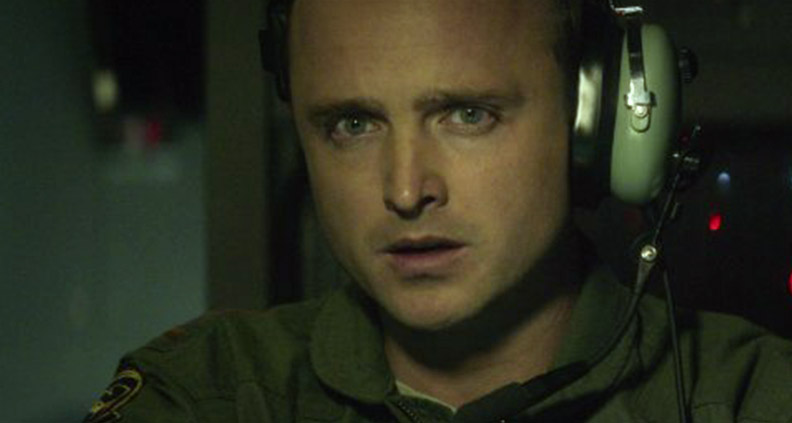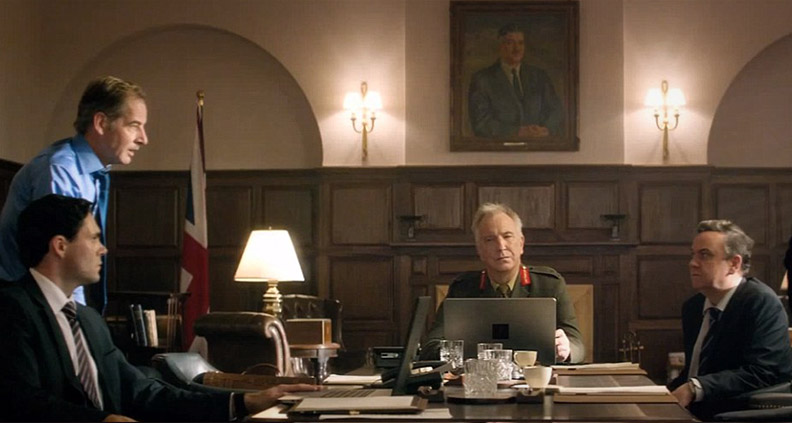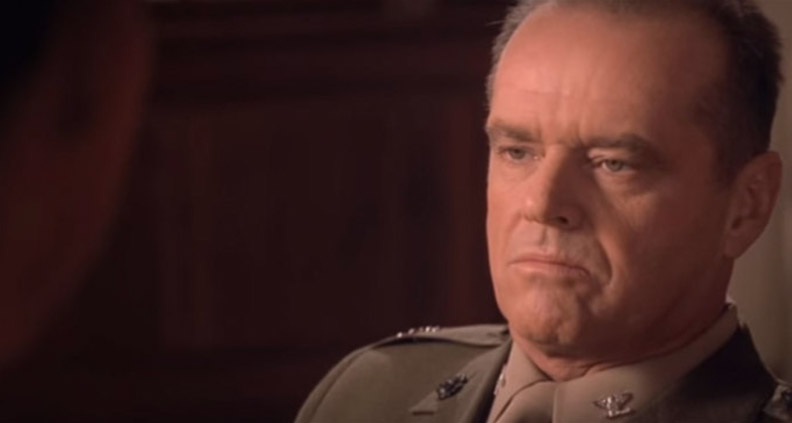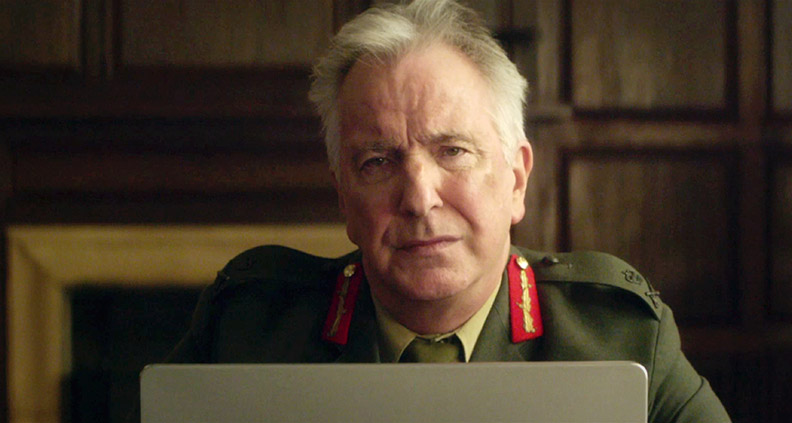Indie-pendent Study: U.S. Military Justice 101 with ‘Eye In The Sky’
Each month in Indie-pendent Study, writer Su Fang Tham explores films that have inspired her to dive into specific areas of interest, prompting her to research and learn about the subjects being depicted (no matter how odd or obscure) in detail well beyond the scope of the original film. Who says watching movies can’t also be educational!
***
Eye In The Sky (2015 dir. Gavin Hood)
Featuring Alan Rickman’s final on-screen performance prior to his untimely passing, Eye In The Sky is South African director Gavin Hood’s rendition of the moral quandary surrounding drone warfare. Lethal drone strikes have garnered much attention over the past decade as their use has vastly expanded: since 2009, over 500 strikes have killed 3,040 militants and terrorists and almost 400 non-combatants.
In the film, British Colonel Katherine Powell (Helen Mirren) leads a multinational operation to capture two British-born Al-Shabaab militants from a safe house in Nairobi. Powell is as icy as she is efficient, commanding on the ground as well as the U.S. Air Force drone surveillance and strike team in Nevada. Powell answers to Lieutenant General Frank Benson (Rickman), who has the unfortunate duty of babysitting a bunch of dastardly political appointees in Whitehall (in the UK) for the duration of this mission.
The operation suddenly turns into a “kill mission” when the commanders realize that the targets are packing munitions into suicide vests (projected to kill up to 80 civilians if detonated in an urban area). But just as drone pilot Steve Watts (Aaron Paul), is seconds away from firing the drone’s Hellfire missiles, a preteen Somali girl sets up shop to sell some bread just outside the external walls of the safe house. This sets into motion a vortex of commotion through the civilian and military chains of command as all involved weigh a difficult moral choice: Do you forgo the life of one child now (whose imminent death is all but certain if the mission proceeds) in order to save an estimated 80 innocent civilian lives at an undetermined time in the future?

As the ball bounces from the Attorney General to the Parliamentary Undersecretary to the Foreign Secretary and finally to the U.S. Secretary of State, viewers are treated to a damning portrait of cowardly civilian leadership versus the military types who just want to do their job and go home without being charged with a war crime.

Further Study
Lt. Watts refusal to release the Hellfire missiles comes dangerously close to the standards of insubordination and disobeying a direct order (both punishable offenses under the Uniform Code of Military Justice “UCMJ”)—especially after all levels of political and military superiors have given their go-ahead to proceed.
As a commissioned officer in the U.S. Air Force, Watts has taken an oath to “obey the orders of the President of the United States and the orders of the officers appointed over me, according to regulations and the Uniform Code of Military Justice.”
Similar to how civilians are subject to the criminal justice system for any criminal wrongdoing, all service members are subject a different set of laws known as the UCMJ. The big difference is that military laws were enacted in 1950 to (quoting the Manual for Courts Martial): “assist in maintaining good order and discipline in the armed forces, to promote efficiency and effectiveness in the military establishment, and thereby to strengthen the national security of the United States,” We’ve all heard from Jack Nicholson’s Colonel Jessup in A Few Good Men: “We follow orders, son. We follow orders or people die. It’s that simple.”

Because the goal of this legal system is first and foremost to ensure that all lawful orders are followed without exception in order to secure the nation’s defense, many offenses that are immaterial in civilian life are punishable offenses in the military, often resulting in reduction in rank (demotion), dishonorable discharge (equivalent to getting fired in the civilian world), forfeiture of all pay and allowances and confinement (jail time in a military penitentiary).
In Lt. Watts’ case, by questioning Colonel Powell’s direct order to fire the missiles immediately, he potentially puts himself at risk of violating the following Articles under the UCMJ with serious consequences:
- ARTICLE 90, ASSAULTING OR WILLFULLY DISOBEYING SUPERIOR COMMISSIONED OFFICER This article makes it a crime for a service member to knowingly disobey the orders of his superiors—and hinges on the order given being a lawful one. For instance, a junior officer would not be required to obey an order from a General to harm or kill an innocent civilian, because that would be deemed an unlawful order.
- ARTICLE 92, FAILURE TO OBEY ORDER OR REGULATION as well as dereliction of duty—punishment for a failure to carry out the responsibilities assigned to you as part of your job.
- ARTICLE 133, CONDUCT UNBECOMING OF AN OFFICER Often considered a “catch all” provision to punish behavior that falls short of what an ideal officer and perfect gentleman should be, which is not clearly defined.
Other interesting examples of punishable acts that we don’t normally come across in civilian life are:
- ARTICLE 87, MISSING MOVEMENT A sailor who misses a day of work when his ship is due to leave port could be charged under this article, which punishes a sailor for failing to move with the ship or aircraft to which he is assigned.
- ARTICLE 104, AIDING THE ENEMY
- ARTICLE 113, MISBEHAVIOR OF SENTINEL OF LOOKOUT
- ARTICLE 114, DUELING
- ARTICLE 134 This article includes straggling, bigamy, adultery, indecent language, wrongful cohabitation, etc.
It’s fascinating stuff. To learn more about the U.S. military justice system, click here.

In the spirit of Veteran’s Day (which, better late than never) let us remember our military and the difficult job they are faced with, and consider the enduring patience and tenacity required to maneuver through a labyrinthine legal system not for the faint of heart.
To learn more about Film Independent, subscribe to our YouTube channel or follow us on Twitter and Facebook. To learn how to become a Member of Film Independent, just click here.